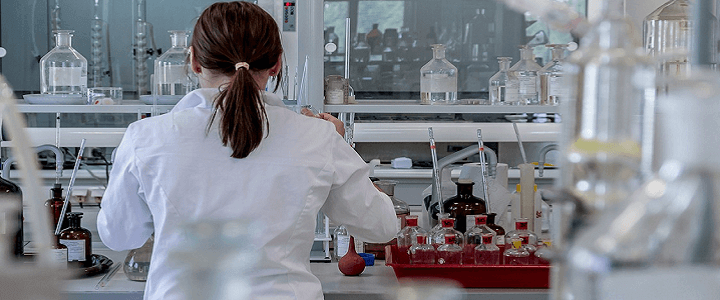Random drug testing is a fact of life for members of the Armed Forces and many security clearance holders. Logically, one might assume that the rate of positive results in such programs is effectively “0”; after all, if you know you’re subject to drug testing, why would you use drugs?
If only life was that simple. Random drug testing programs exist not only because of their deterrence factor but also because they actually catch people. A surprisingly large number of people, in fact – and not all of them for using illegal drugs.
Some clearance holders test positive due to a legally prescribed medication used to treat a bona fide medical condition; most of those cases are quickly and easily dismissed. In a more recent phenomenon, other clearance holders are testing positive as a result of topical CBD oil use.* Still others fall victim to laboratory mix-ups or sample contamination, although such cases are rare.
How to Fail a Drug Test
The bottom line is that there are a number of different ways to initially fail a drug test, some due to illegal drug use and some for entirely innocent reasons. I can’t tell you what to do in every one of them without a careful analysis of the facts. What I can tell you is what NOT to do: talk to security officials, law enforcement, or military commanders without first retaining an attorney.
To give you an idea why, here is a general, non-exclusive list of evidence we demand from the government as part of a security clearance revocation case due to a positive drug test:
- (a) predication documentation (was this a truly random test or based on suspicion that the individual was under the influence of a controlled substance)?
- (b) the lab and certifying official’s credentials and licensing
- (c) chain of custody documentation
- (d) proof of compliance with scientifically-accepted specimen storage/handling procedures
- (e) any disciplinary action taken against the lab or certifying official by regulatory or licensing authorities;
- (f) any prior cases in which the lab or certifying official’s credentials or practices have been impeached or otherwise found unreliable or inaccurate
- (g) for CBD oil cases: any written agency policies regarding CBD oil use (to include dissemination/publication date)
- (h) any documents our client signed regarding the agency’s drug use policy
- (i) the lab test results
- (j) copies of any written statements made by our client or interviews done with our client regarding this matter
In some cases, the government cannot produce the required documentation, thereby lending credence to a legal defense that the results are unreliable, contaminated, or otherwise erroneous. In other cases, the documentation the government produces actually bolsters our position; if you think drug testing laboratories don’t screw up, think again.
Now imagine if before getting the benefit of all this information you’ve preemptively made statements that compromise your case. It is a tragic and irreversible mistake, but many people don’t stop to think before speaking. That’s precisely why security officials, law enforcement, or military commanders are so eager to speak with you: to lock you into a story early when you’re off-balance and scared.
I don’t condone using illegal drugs and, to be clear, making a false official statement – e.g. falsely denying the use of illegal drugs to a federal agency – is a crime. But there are a lot of different ways to skin a cat (which, incidentally, I also don’t condone!). Don’t commit to one until you know exactly what you’re facing.
*Although the 2018 Agricultural Improvement Act (commonly known as the “Farm Bill”) legalized CBD oil containing less than 0.3% THC concentration by dry weight, we are finding in our practice that even CBD oil with an advertised THC concentration below the new legal threshold still sometimes results in a positive drug test. It is unclear whether this is due to false advertising by the manufacturer, faulty testing procedures, or other external factors. The takeaway, however, is that it is risky to assume the contents label on CBD oil is scientifically accurate absent certification by a third-party laboratory.
This article is intended as general information only and should not be construed as legal advice. Consult an attorney regarding your specific situation.




